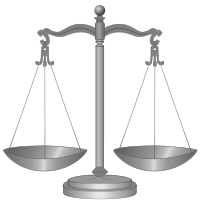
September 12, 2012, by Jonathan
The bravery of burglars
On Tuesday 4th September a Teesside Crown Court judge said: ‘It takes a huge amount of courage…for somebody to burgle somebody’s house. I wouldn’t have the nerve.’ On Thursday 6th, David Cameron responded, saying: ‘I am very clear that burglary is not bravery. Burglary is cowardice. Burglary is a hateful crime‘ (http://www.bbc.co.uk/news/uk-england-tees-19503922). So, is burglary courageous or cowardly? Who is right: the judge or the Prime Minister?
The Oxford English Dictionary (in a section that reads as if it has been unchanged since the 19th Century) defines ‘coward’ as: ‘A reproachful designation for one who displays ignoble fear or want of courage in the face of danger, pain, or difficulty…’. Breaking and entering into a house is dangerous (as recent events show:http://www.bbc.co.uk/news/uk-england-leicestershire-19456928), can be painful (ditto) and is usually difficult. When a burglar tries to break into a house they usually face danger, difficulty and the prospect of pain. If a burglar doesn’t show any fear at this prospect then they cannot be a coward (since a coward is someone who ‘displays…fear’ in such cases). Similarly, the OED defines courage as ‘That quality of mind which shows itself in facing danger without fear or shrinking…’. Breaking and entering is personally dangerous and, insofar as a burglar does it, they face this danger without fear (or at least, without fear sufficient to deter them). Score one to the judge.
But there is more going on here. When someone transgresses against the widely-accepted norms and laws of society, there is an understandable need to condemn them as strongly as possible. It is tempting to throw every ‘reproachful designation’ in the book at them. So: not only did Bloggs act wrongly, but he is also a coward, vain, boastful, licentious, lacks a sense of humour and – look! – he doesn’t even wash behind his ears! The more mud we sling, the more likely others will see dirt.
This tendency is perhaps understandable, but misguided. An act can be wrong without being cowardly; someone can be evil without being vain, commendable without being modest. In general, moral condemnation and praise come in many distinct flavours, not all of which are appropriate at any one time. So, when the judge praises burglary as courageous, this is not the beginning and end of the evaluation. It is perfectly consistent to that hold that such acts are courageous yet wrong, and ought to be punished. (Perhaps the judge in this case has these further beliefs, perhaps not – unfortunately none of the media outlets that reported the story gave a link to the full verdict, preferring to de-contextualise this one short remark. If anyone can find (a link to) the whole of the judge’s speech, please post it in comments below.)
There may be something further thing going on here. In the modern secular age, dominated by a scientific world-view, certain moral concepts may be regarded as a devalued or even defunct. If there is no God, then anything is permissible – so goes the old adage. But even if we don’t take that extreme view we may feel that without a religious underpinning notions of right and wrong, obligation and duty, lose their grip on us (after all, how can we be obliged to do something if there is no one obliging us? – see Anscombe 1958). Notions such as ‘the cowardly’, however, may seem more grounded in the mundanely psychological: coward is a partly psychological, partly moral concept. As such, labelling an action ‘cowardly’ may resonate with a larger constituency than simply calling it ‘wrong’ (with the possible religious connotations the latter has being a bar to wider currency). Perhaps then, the urge to misapply words like ‘coward’ derives not only from the general urge to condemn as strongly as possible, but from the more particular thought that it is these quasi-psychological types of condemnation that will have the most traction with broad swathes of the public.
Of course, our condemnation must be accurately guided if it is to aid rehabilitation (something that judges, perhaps more than politicians, are acutely aware of). Falsely labelling an act of breaking and entering cowardly does not help with later rehabilitation. Just think: if burglary really is cowardly, and part of the point of punishment is to extinguish those character traits that lead to crime, then prisons should be giving burglars bravery training.
Reference: Anscombe, Elizabeth. 1958. “Modern Moral Philosophy” inPhilosophy 33(124) pp.1-19. (With apologies for conflating the distinction between terms and concepts.)
No comments yet, fill out a comment to be the first

Leave a Reply